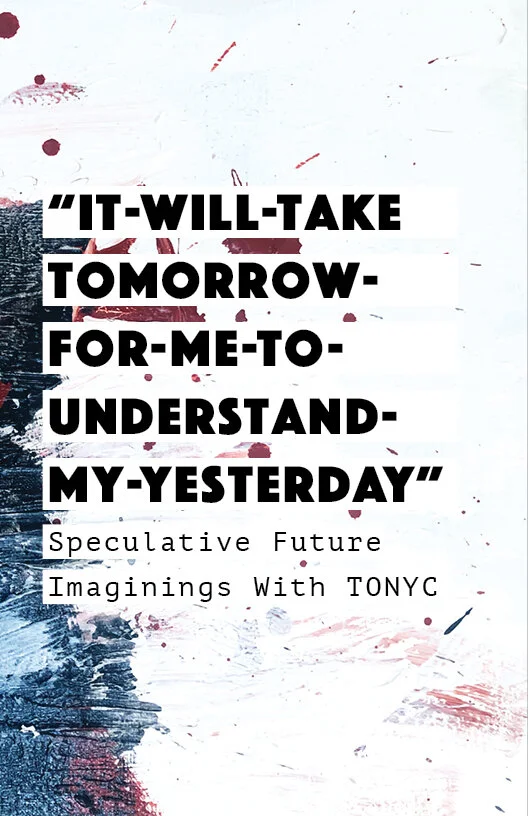Speculative IMAGININGS with TONYC
How might we use speculative design and Theatre of the Oppressed methodologies in a transdisciplinary approach, to create community? resilience in the face of the COVID19 pandemic?
PROJECT DETAILS:
Timeline: 2 months
Tags: Research + Project Management, Participatory Design, Visual Design, New Research Methods
Methods:
Co-Creative Workshops
Project Overview:
In April 2019, at the start of the COVID19 pandemic in NYC, I partnered with TONYC to understand how we might combine our respective methodologies - mine being speculative design, theirs being the methods of August Boal’s Theatre of the Oppressed - to create community resilience.
We used a combination of poem writing, speculative design tools, and speculative legislation crafting to build an image, and bridge, to a more just world. This work builds off of the work of Saidiya Hartman’s speculative archives, Alexis Pauline Gumbs’ worldbuilding poetry, Shana Agid’s Social Design, and Augusto Boal’s Theatre of the Oppressed near-future narrative rescripting exercises, known as Forum Theatre. We used a bespoke iteration of a futures wheels to as a method of building a bridge from the artistic expression in the poems to ideas of concrete manifestations of the worlds they hinted at. We then crafted legislative policies that were aimed at building a bridge from our current world to the future one detailed in our poems and wheels, which we gathered into a zine.
By the close of the project, even though the COVID-19 pandemic was source of significant, acute anxiety, the group response was that the process had been therapeutic, useful, and created a feeling of ownership and urgency - but not inevitability - regarding the future.
Finally, I asked everyone what format they’d like to share the work. We agreed on a digital collage. I then took inspiration from the Design Justice Network and Movement Generation, and created a digital zine where I could compile all of our work, and outline our process. I also took the opportunity to write two short plays and offer some illustrations. In an effort to infuse some of the embodiment that is so integral to Theatre of the Oppressed, I made elements of the zine interactive, and outlined a pathway for the reader to play along and imagine their own worlds. I often struggle with the question of who am I in relation to the project when using participatory design methods - especially with communities that I am not an constant member of - and given that my contributions up to this point had been strictly facilitation-focused, I think the distance it created between me and the actors was less helpful to the process.
Finally, the question I had gone into this process with - does this process make a just future feel more real and attainable - was answered. Even though the COVID-19 pandemic was source of significant, acute anxiety, the group response was that the process had been therapeutic, useful, and created a feeling of ownership and urgency regarding the future. I believe there is further research to be done in experimenting with the blending of speculative design, justice work, and Theatre of the Oppressed, as well as its applicability in the fields of reconciliation, conflict resolution, and restorative justice.
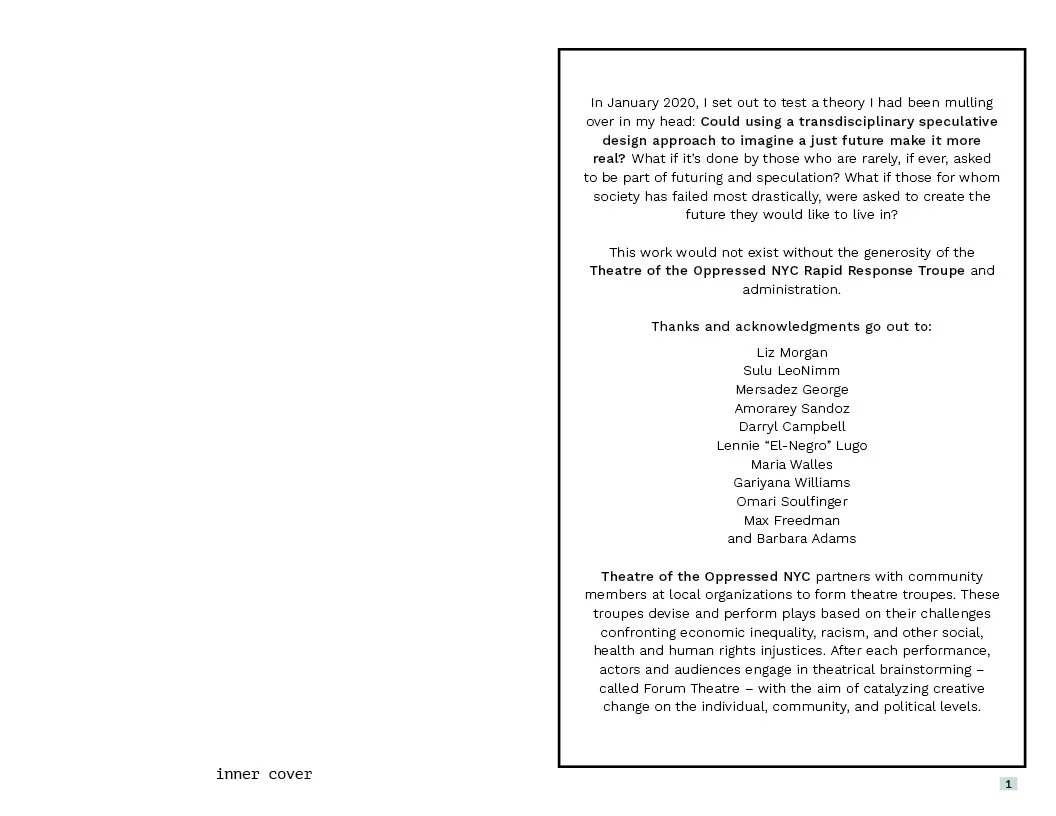
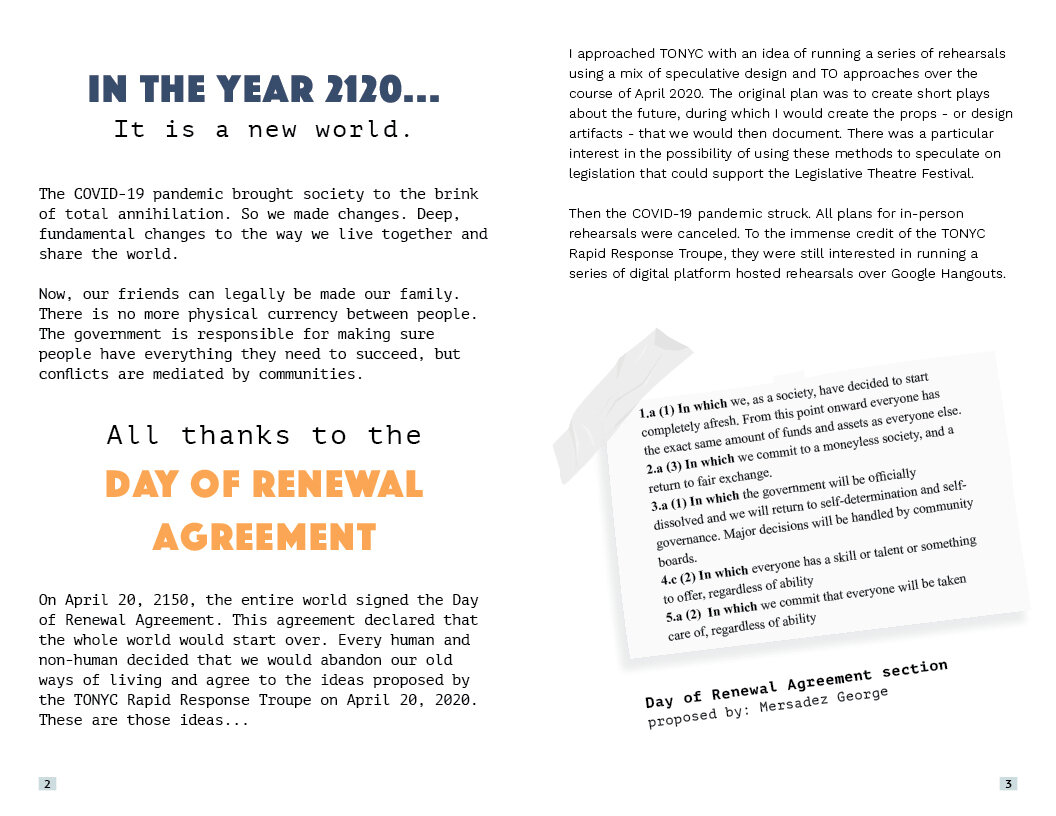
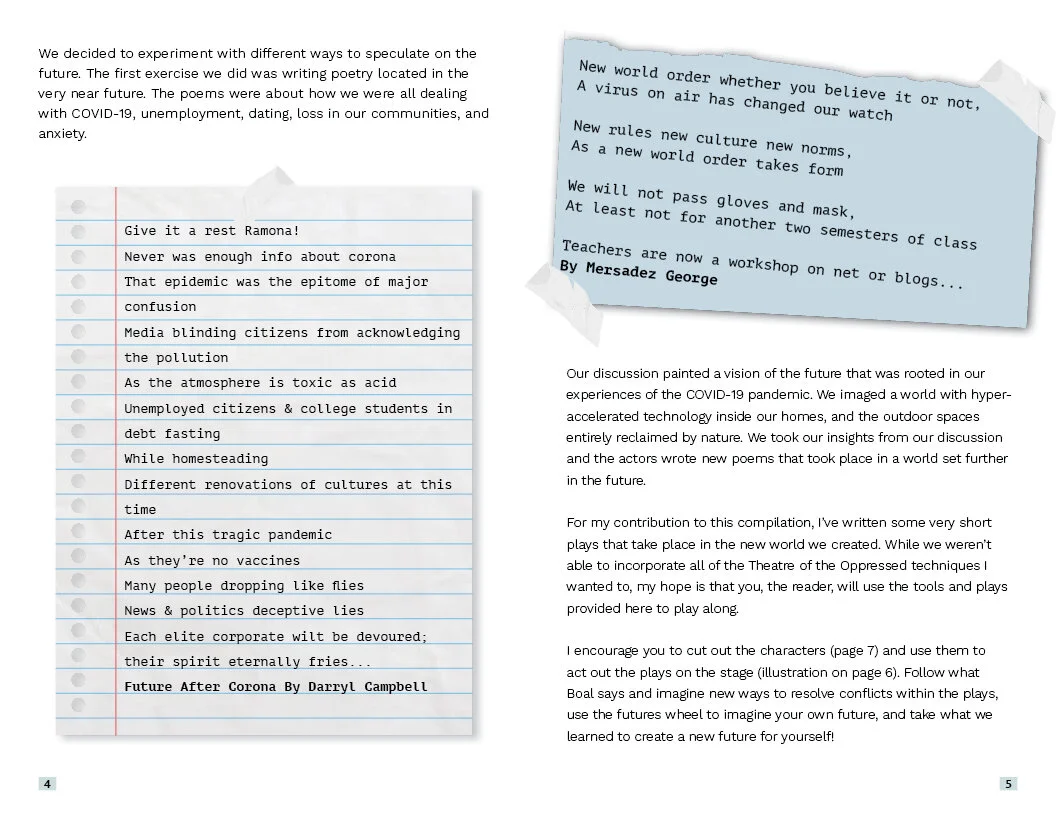
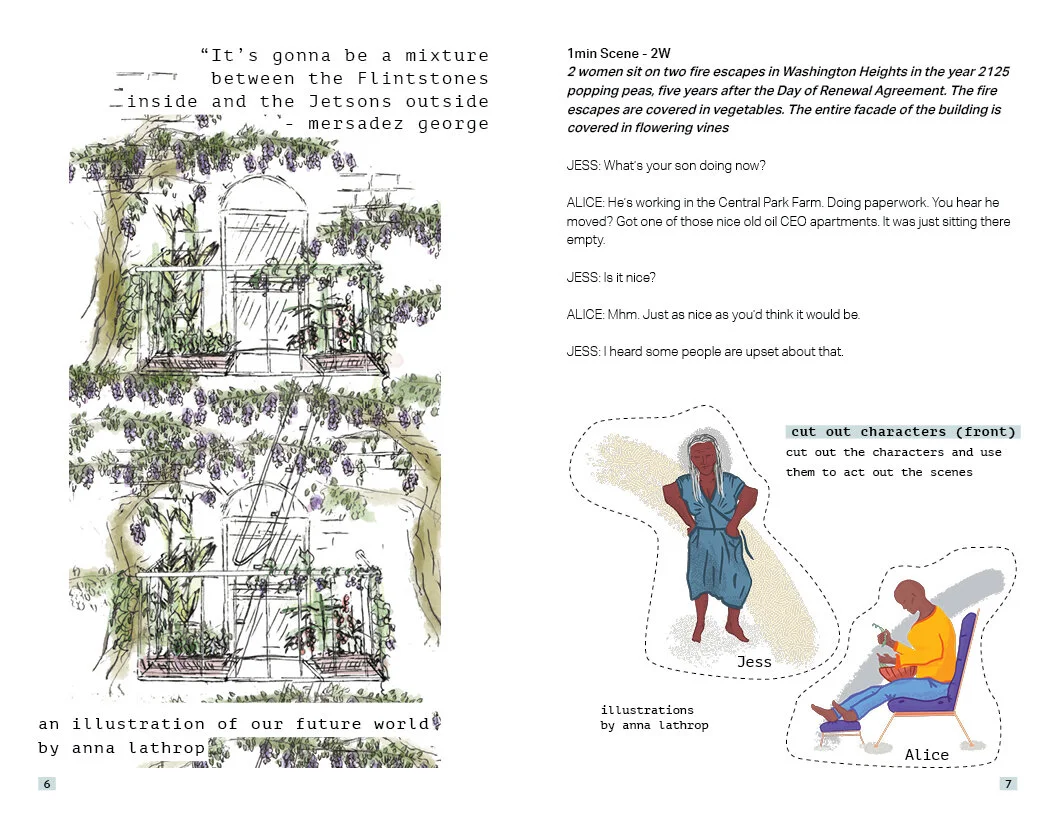
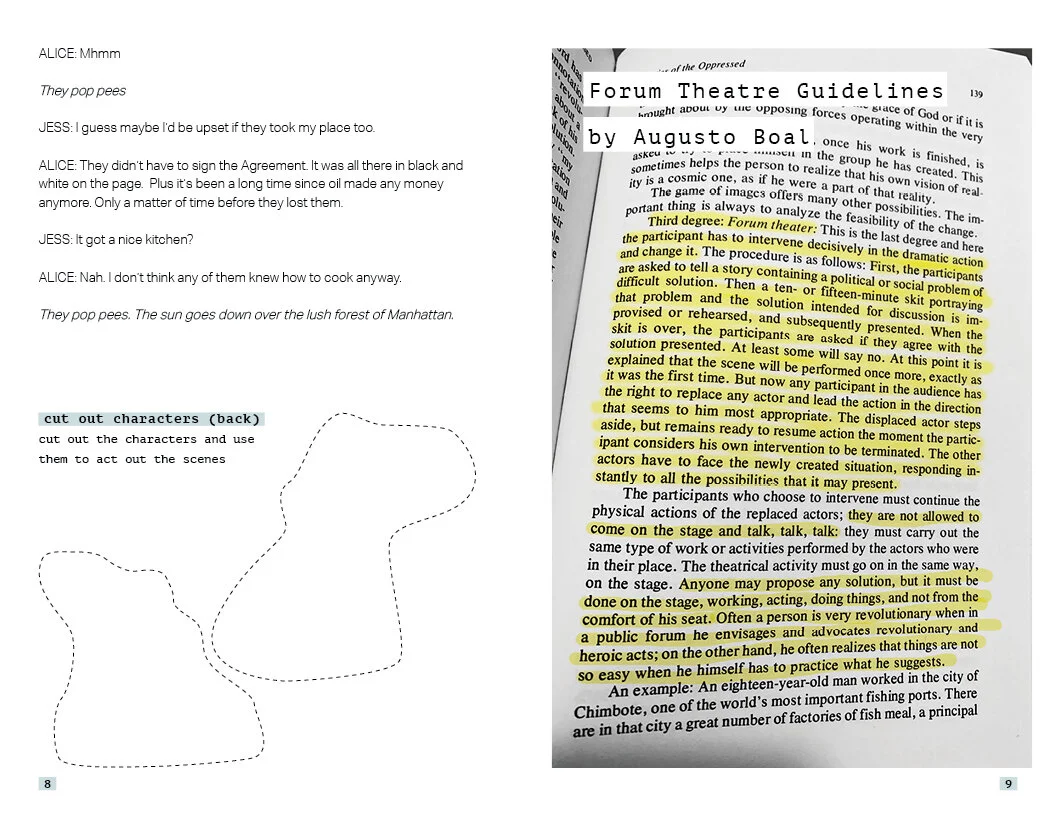
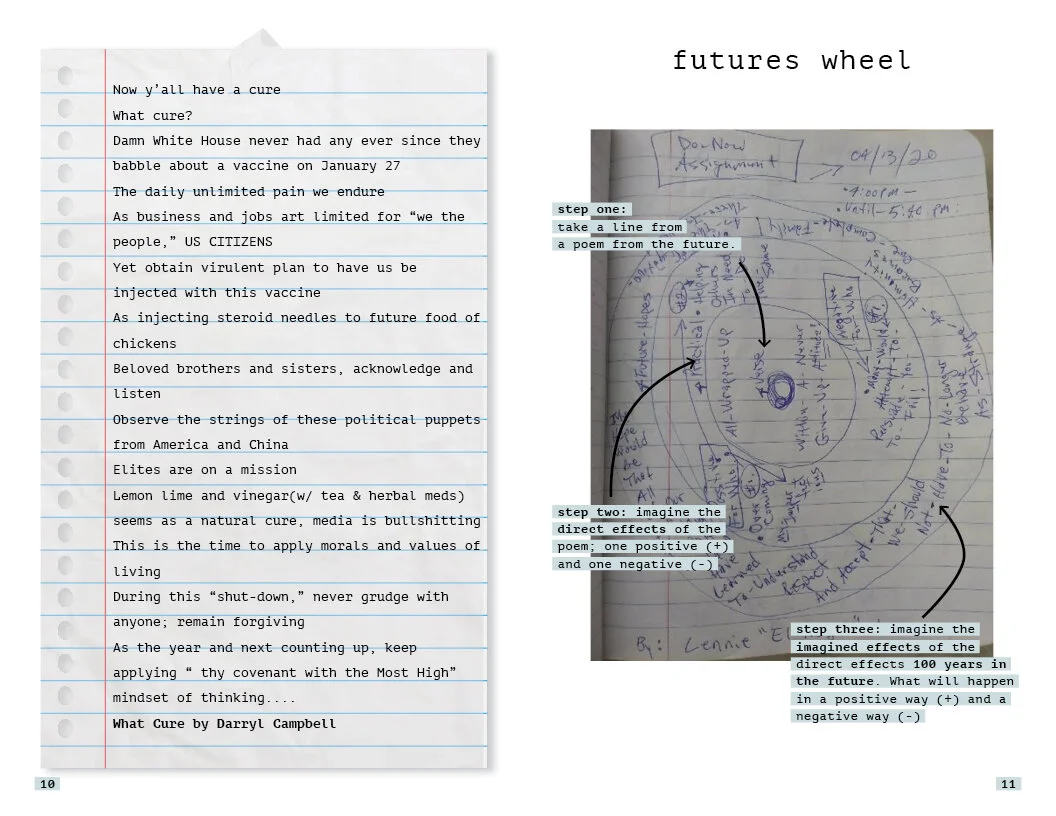
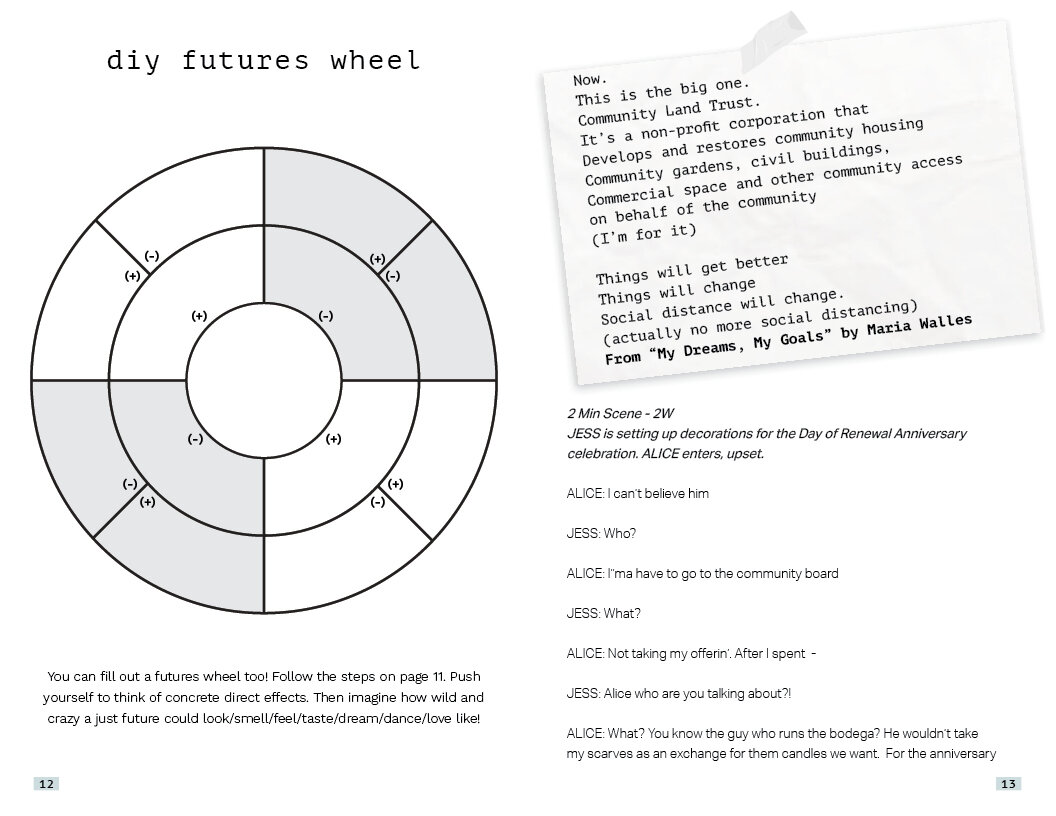


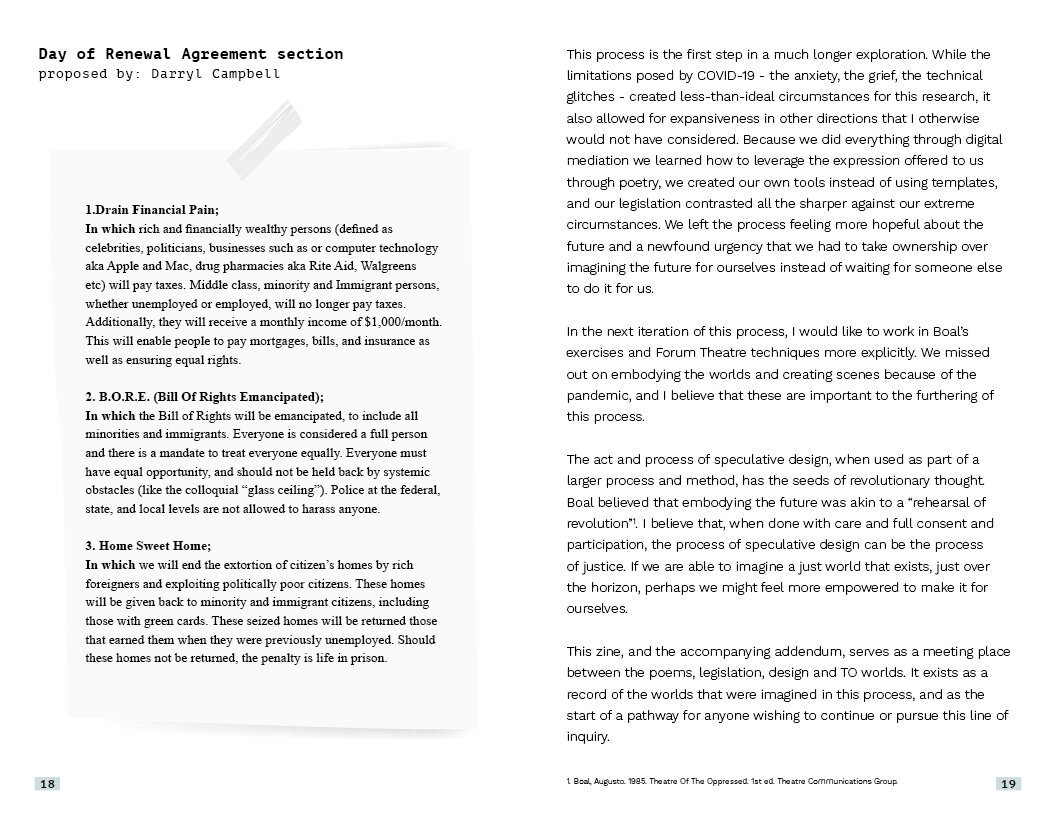
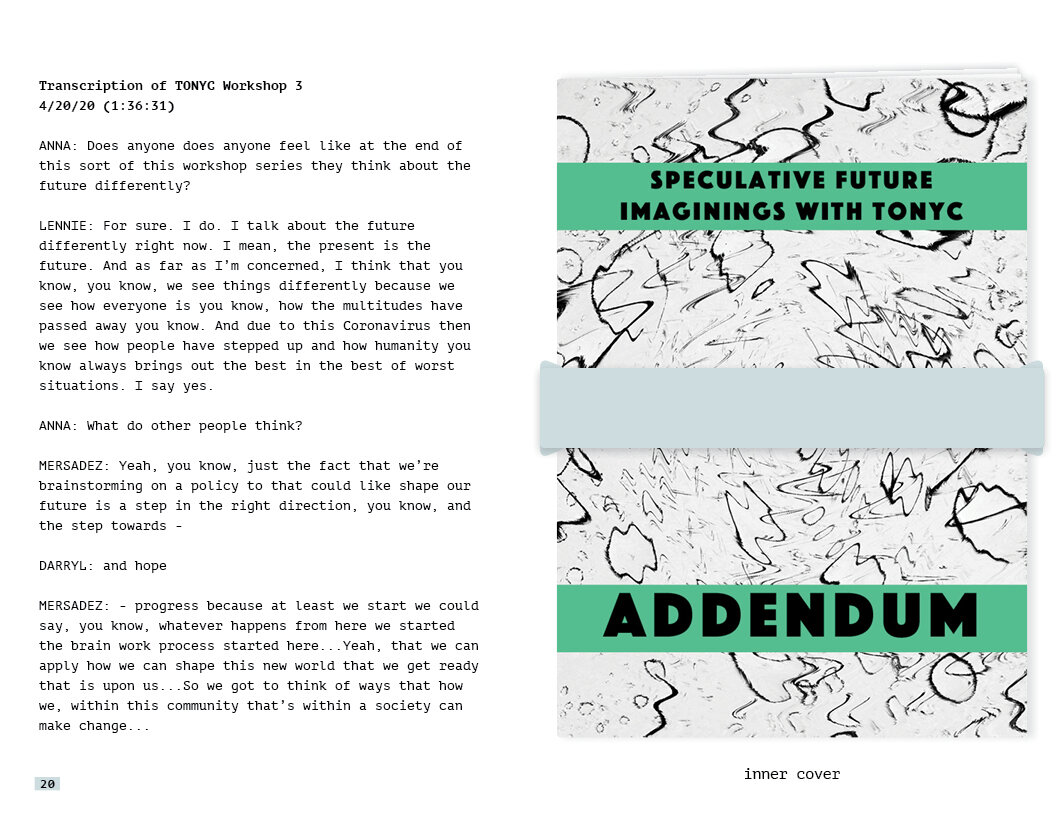
NOTE: The printable version is laid out to be printed double-sided on 8.5 x 11 landscape pages and then folded in half. The order of the pages is correct when you fold them in half and put them together…trust me.
Addendum
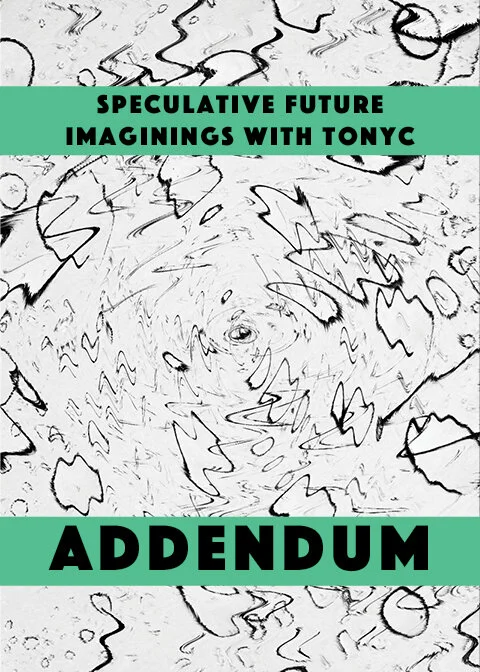
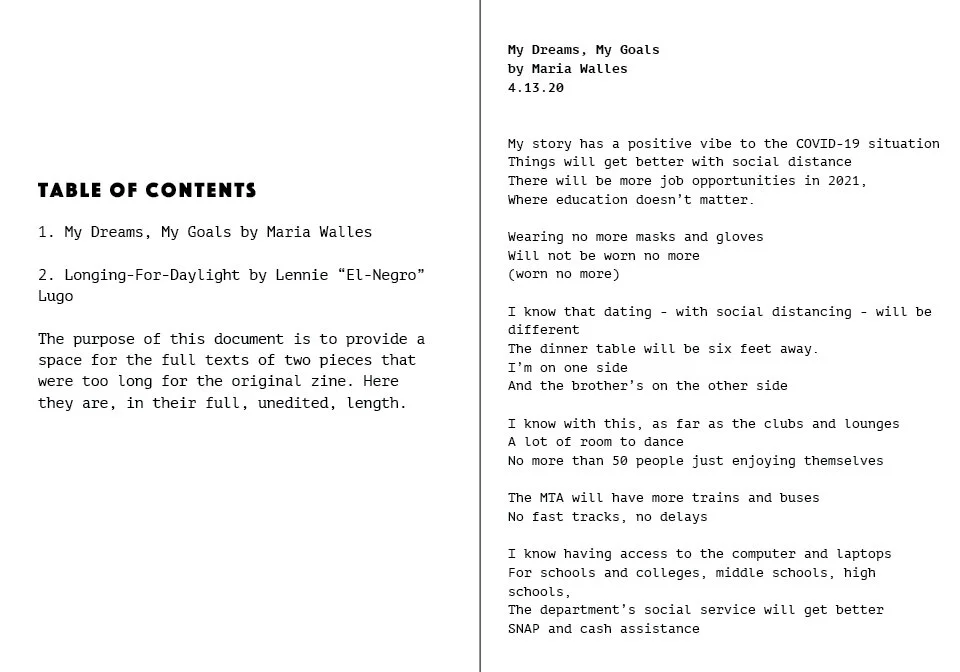
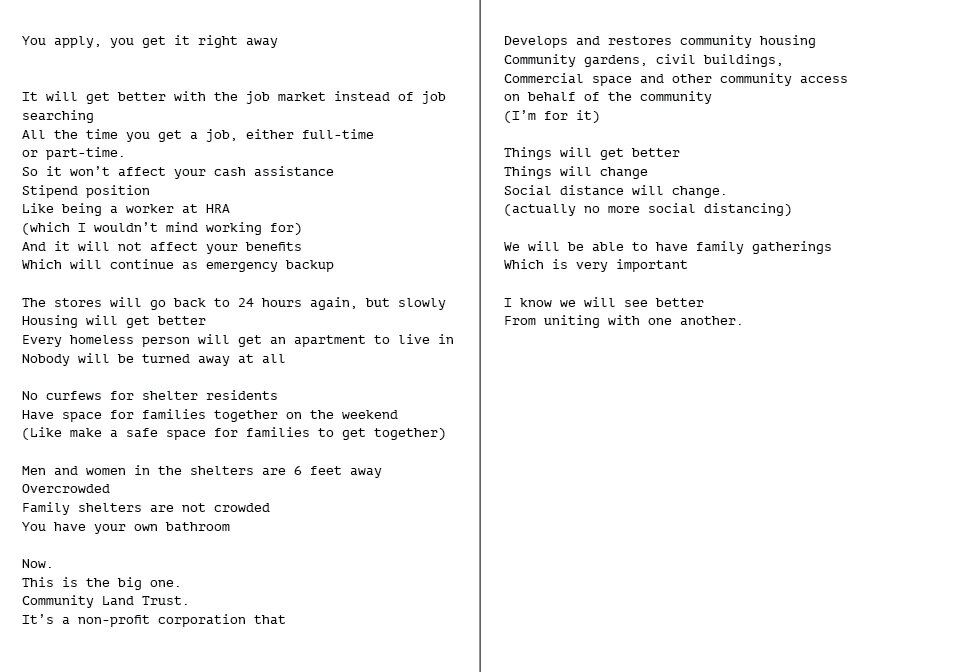
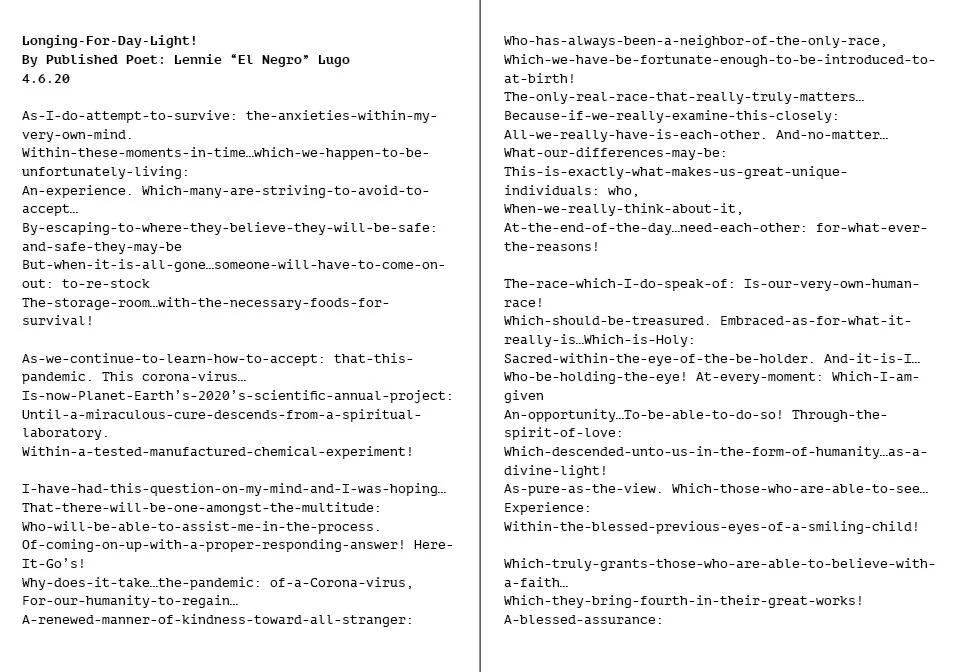
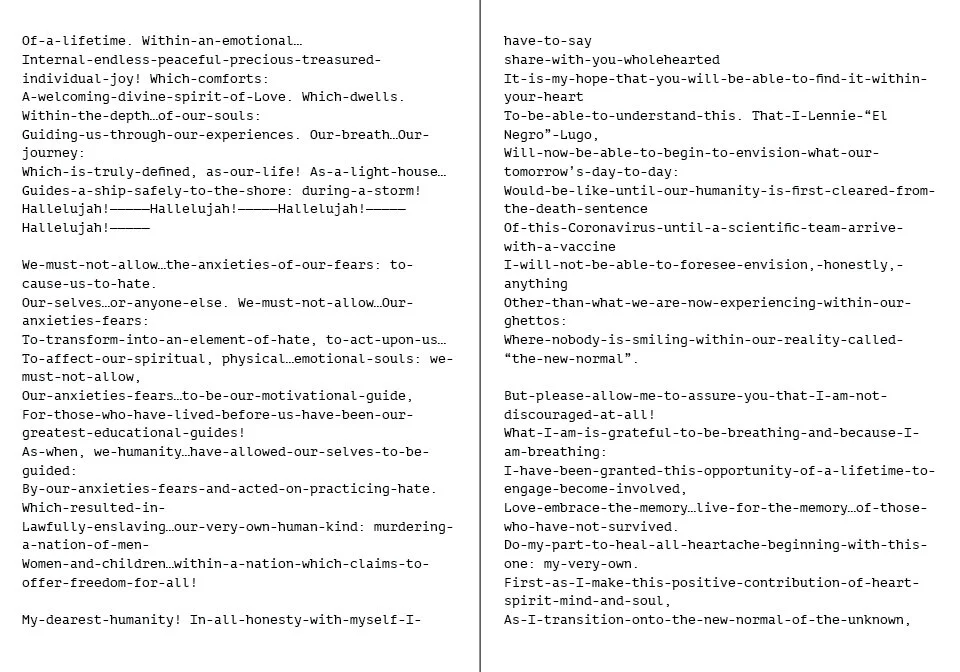
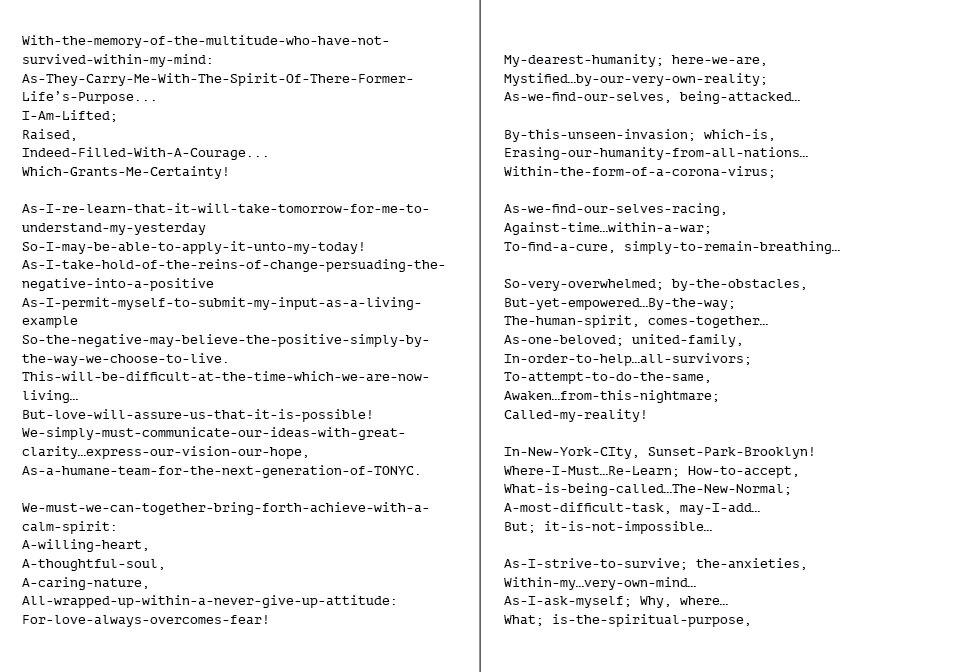
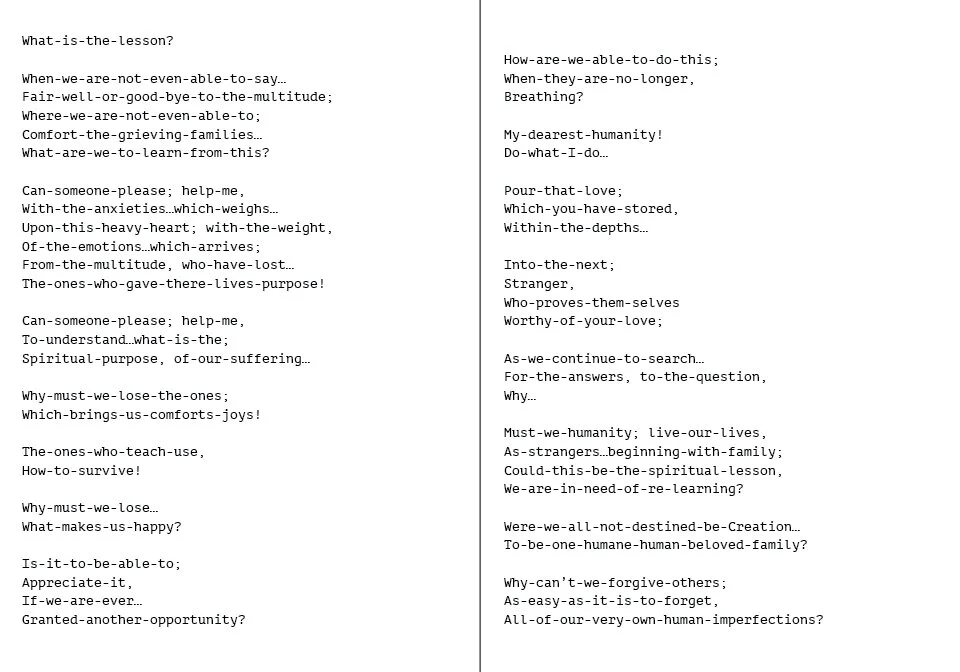
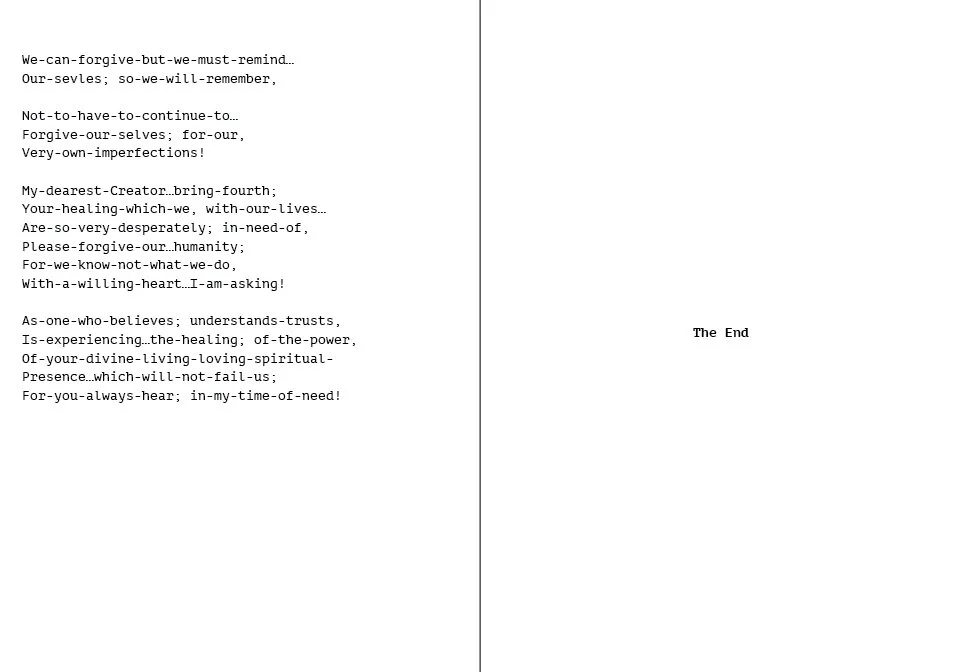
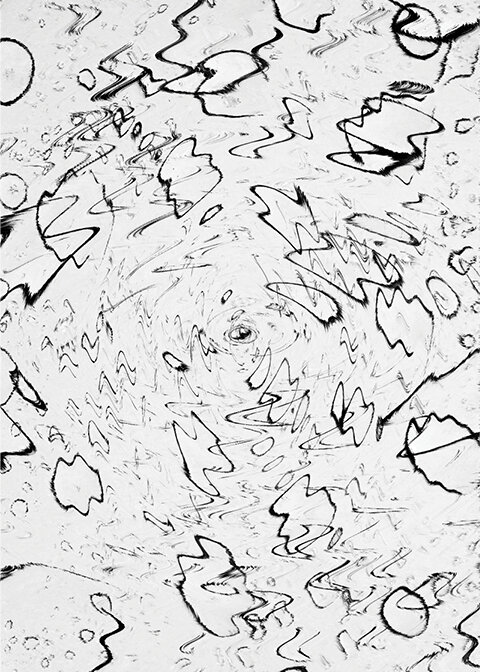
Reading List:
Agid, Shana. 2011. "How Do We Transition People From A System That Doesn't Want To Let Them Go?’: Social Design And Its Political Contexts". Design Philosophy Papers 9 (3): 187-206. doi:10.2752/144871311x13968752924833.
Brecht, Bertolt, (2002) "New technique in acting" from N/A, The twentieth century performance reader pp.93-104, London: Routledge
Boal, Augusto. 1985. Theatre Of The Oppressed. 1st ed. Theatre Communications Group.
Pauline Gumbs, Alexis. 2016. Spill : Scenes Of Black Feminist Fugitivity. 1st ed. Duke University Press.
Hartman, Saidiya. 2020. WAYWARD LIVES, BEAUTIFUL EXPERIMENTS. [S.l.]: W W NORTON.









